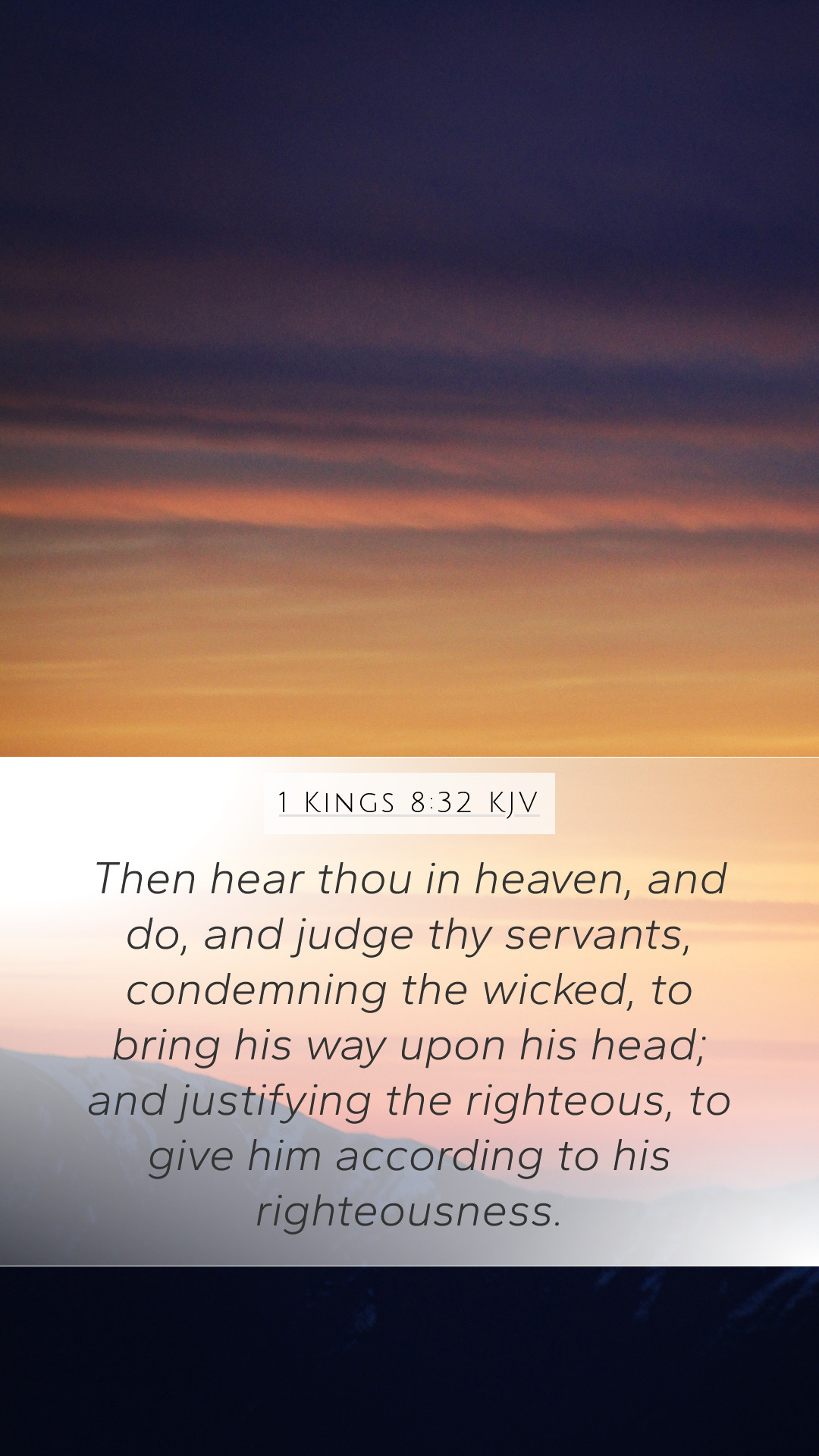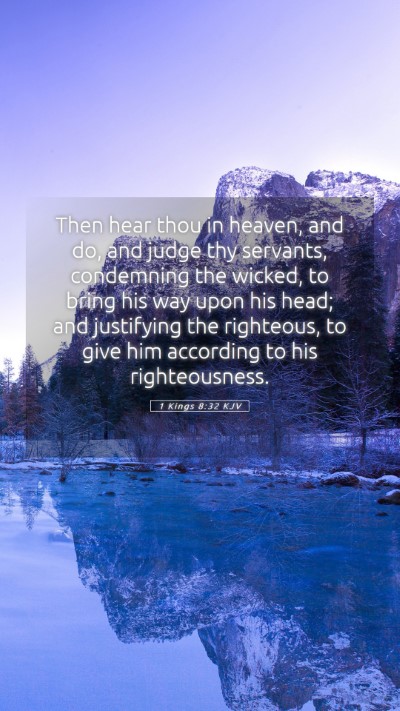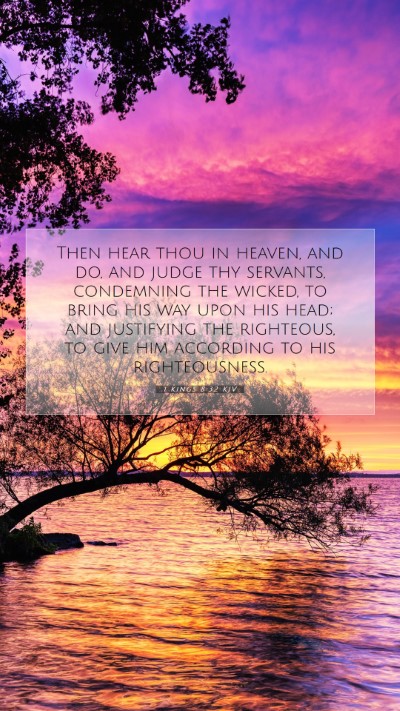Understanding 1 Kings 8:32
1 Kings 8:32 states:
"Then hear thou in heaven, and do, and judge thy servants, condemning the wicked, to bring his way upon his head; and justifying the righteous, to give him according to his righteousness."
This verse is part of Solomon's prayer during the dedication of the Temple. It highlights themes of divine justice, the role of God as the ultimate judge, and the importance of righteousness. Below, we explore various insights derived from public domain commentaries by Matthew Henry, Albert Barnes, and Adam Clarke.
Bible Verse Interpretations
This passage reveals critical aspects of God's nature and His dealings with humanity.
- Divine Justice:
One key interpretation from both Matthew Henry and Albert Barnes highlights the emphasis on God's role as the judge who evaluates human actions. Solomon acknowledges that God must judge fairly, condemning the wicked and justifying the righteous, ensuring that moral order is maintained.
- The Importance of Righteousness:
Adam Clarke elaborates on the necessity of righteousness and integrity among God's people. This verse encourages individuals to live justly, as their actions will ultimately be assessed by God.
- God's Awareness:
All three commentators stress that God is not oblivious to human actions. Rather, He is deeply involved and attentive to the affairs of humanity, reflecting a theology that sees God as engaged and responsive.
Scripture Analysis
In analyzing this scripture, several aspects emerge:
- Historical Context:
Understanding the historical context of this prayer during the Temple's dedication is vital. Solomon is seeking God's favor and guidance for the new establishment where His name would dwelt.
- Application to Daily Life:
This verse calls believers to reflect on their own lives, ensuring that their actions align with righteousness, anticipating the divine judgment that will occur in God’s perfect timing.
- Prayer and Worship:
It indicates that prayer is a vital component of worship, as Solomon pleads with God to hear and act upon the prayers offered in the Temple, underscoring the significance of communal worship in seeking divine intervention.
Meaning of Bible Verses
1 Kings 8:32 yields profound insights:
- Representation of God’s Character:
This verse depicts God as one who is just and fair, creating an invitation for believers to emulate these divine qualities in their own lives.
- The Role of Prayer:
It shows that prayer is not merely a ritual but a heartfelt plea for justice, guidance, and moral clarity, representing a relationship with the divine.
Significance and Application
The significance of this verse is multi-faceted:
- Encouragement for Society:
It serves as an encouragement to pursue justice in the community, reminding believers that they should advocate for righteousness.
- Hope for the Oppressed:
The verse assures the oppressed and wronged that God will uphold justice, providing hope in times of distress.
- Challenge for the Wicked:
It acts as a warning to the wicked that their deeds will not go unnoticed and that divine retribution is real.
Conclusion
In conclusion, 1 Kings 8:32 encapsulates key theological themes that encourage believers to embody justice and righteousness while relying on God's ultimate judgment. The passage serves both as a reminder of God's sovereignty and a call to action for individual moral conduct and community integrity.
Related Cross References
- Psalm 7:11: "God judgeth the righteous, and God is angry with the wicked every day."
- 2 Chronicles 6:30: "Then hear thou from heaven thy dwelling place, and forgive, and render unto every man according unto all his ways, whose heart thou knowest."
- Proverbs 21:15: "It is joy to the just to do judgment: but destruction shall be to the workers of iniquity."


